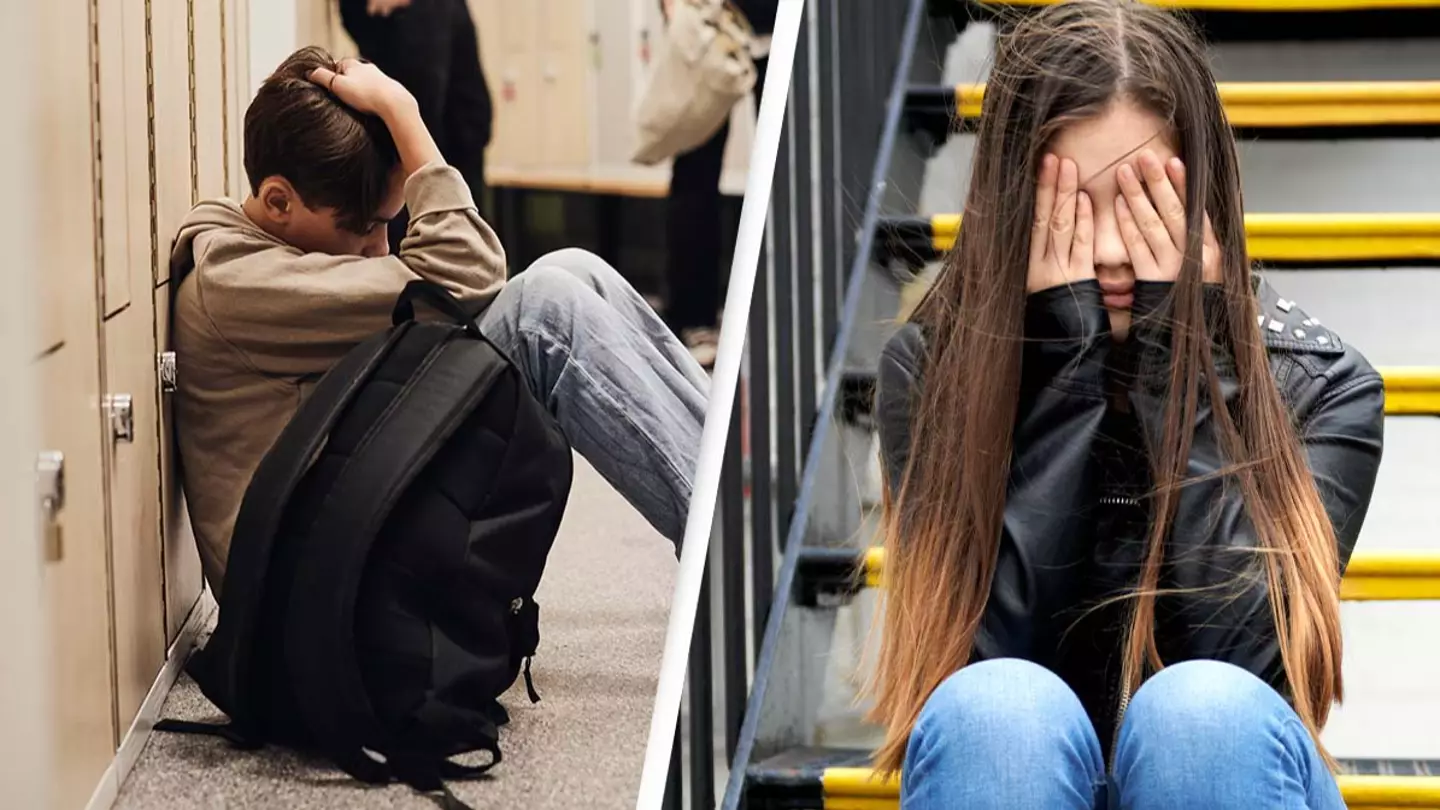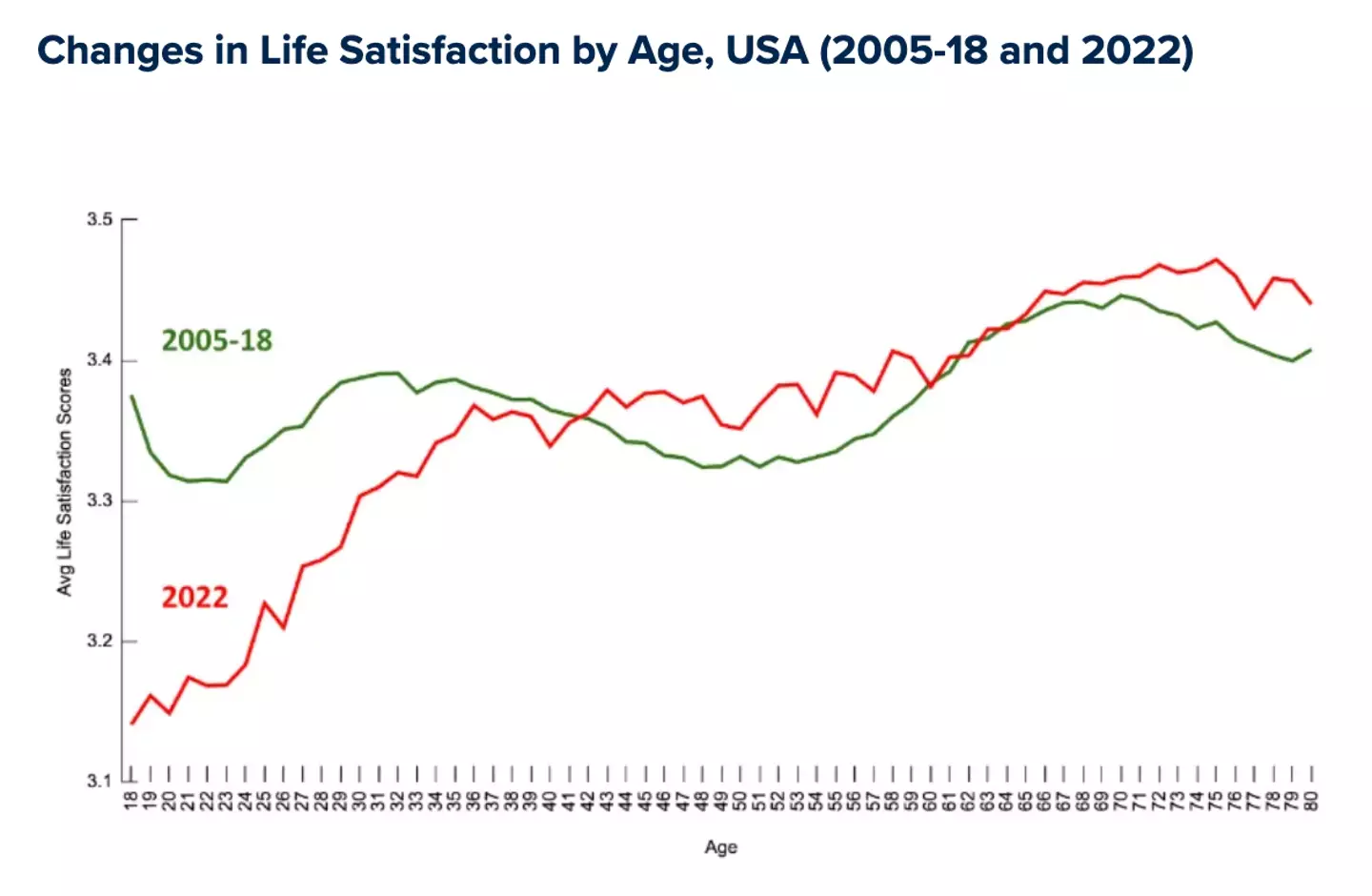
A scientific study has revealed a shocking change to when people are considered their most and least happy in life.
While the coronavirus pandemic may've come to an end, in its wake, it's left a 'mental health pandemic', particularly prevalent among young people.
Add to that an even more competitive job market, a cost of living crisis, soaring rent prices and the many other things to worry about at the moment - the climate crisis, our healths, the list goes on - and it's a recipe for a mental health disaster.
And a study has since revealed just how unhappy young people are, so much so the 'u-shaped curve of happiness' which is how scientists previously understood human happiness has been turned on its head.
Advert
When looked at from a scientific standpoint, happiness has - until now - been widely considered as being 'U-shaped in age' and 'unhappiness hump-shaped in age'.
This means, historically, on average, people have been considered to be as happy as they are when young as they will be until old age, the period of mid-life when they're most unhappy.
David Blanchflower and Alex Bryson states in a Global Interdependence Center blog post titled The Global Loss of the U-Shaped Curve of Happiness: "For many, their student days were the happiest days. The evidence of a midlife low period centered around age 50 had been found across 146 countries over the period 1973-2017."
And this isn't just the standpoint of one scientist or paper, but over 600 scientific published papers according to the blog.

The blog continues: "Across a variety of datasets and measures, the finding of a midlife low has been consistently replicated. The U-shape has been apparent across a whole range of well-being metrics, including life satisfaction, financial satisfaction, worthwhileness, and happiness.
"Every US state had a U-shape."
However, in recent years, many scientists' understanding of human happiness and how it's a 'U-shape' has been completely altered, findings revealed through a paper called The Declining Mental Health of the Young and the Global Disappearance of the Hump Shape in Age of Unhappiness, co-authored by Blanchflower, Bryson and Xiaowei Xu.
The blog reveals the study found: "The hump shapes and U-shapes in age have disappeared into the ether."

While it 'used to be the case that young people had low levels of mental ill health and as they got older, ill health increased, reaching a peak at around age 50 before it then started to improve,' now, young adults aged between 18-25 are the 'least happy people'.
A graph by the Behavioral Risk Factor Surveillance System (BRFSS), which measures 'changes in life satisfaction by age in the USA from 2005-18 and 2022' asked a group of people from the ages 18 to 80 how 'satisfied' they are with their life on a scale of one to four, one being 'very dissatisfied' and four 'very satisfied'.
Indeed, the graph reveals: "Unhappiness now declines with age, and happiness now rises with age."
"This change seems to have started around 2017," the blog continues. And the level of unhappiness in young people is reported as being particularly prevalent among young women in particular.

The blog resolves: "This change appears to have taken place around 2014-17; it especially impacted young women, and it appears to be global. We have found evidence that mental health improves with age across 82 countries from both the developing and the developed world.
"That includes countries as different as the US, China, India, Bangladesh, Sweden, Bolivia, Japan, Qatar, Uzbekistan and Tanzania.
"The long-studied midlife crisis has now been replaced with a mental health crisis of the young… globally."
Blanchflower added, as quoted by Scientific American: This is a global problem. We’re past the point of measuring. We should be out doing pilots, trying to figure out what might work. We should be trying to come up with solutions.... Tell me what we can do to help these young people who are in trouble."
If you or someone you know is struggling or in crisis, help is available through Mental Health America. Call or text 988 to reach a 24-hour crisis center or you can webchat at 988lifeline.org. You can also reach the Crisis Text Line by texting MHA to 741741.
Topics: Mental Health, Health, World News, US News, Science